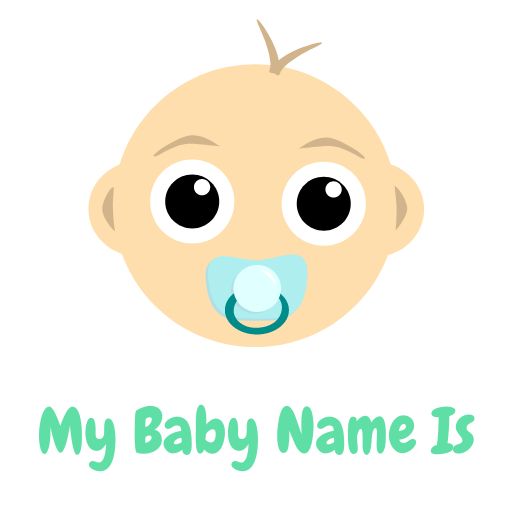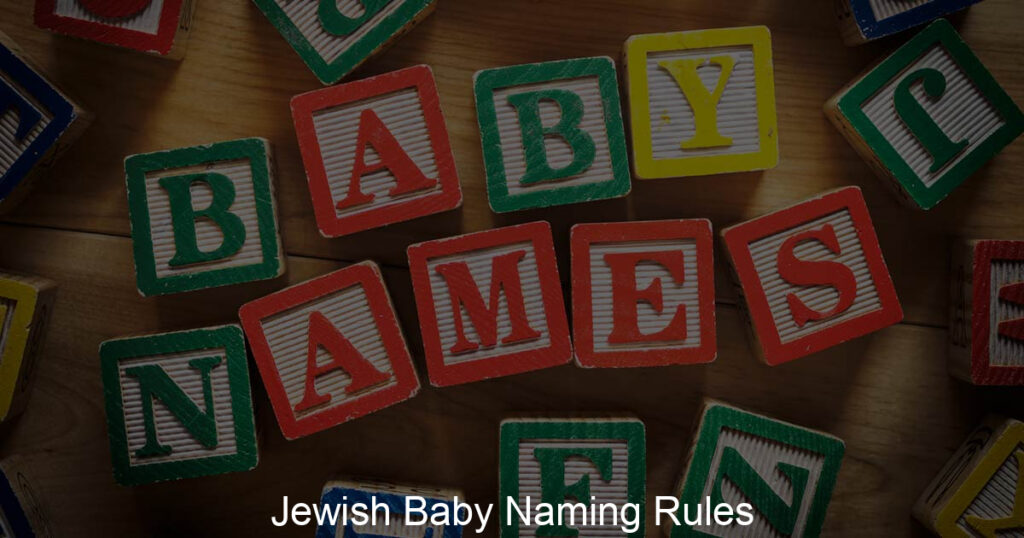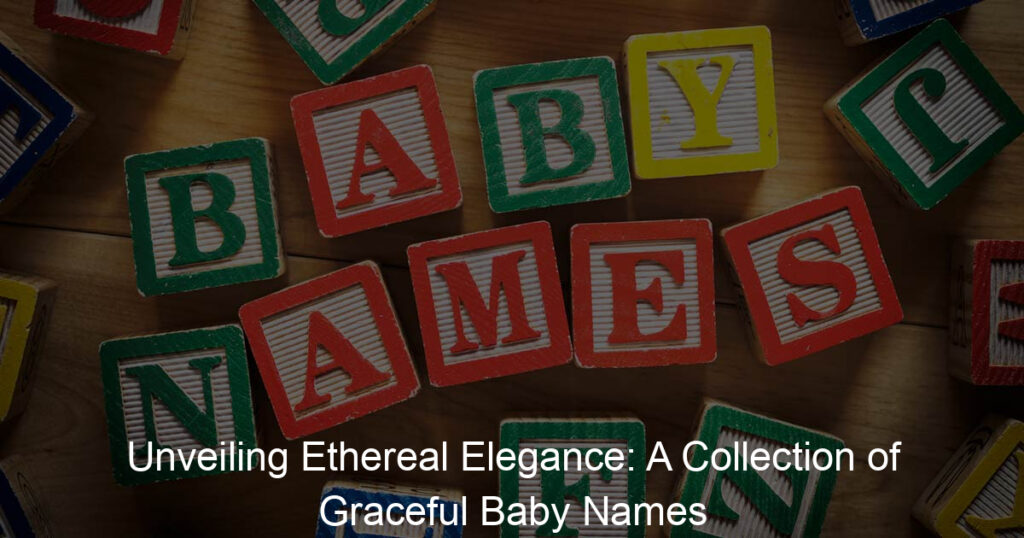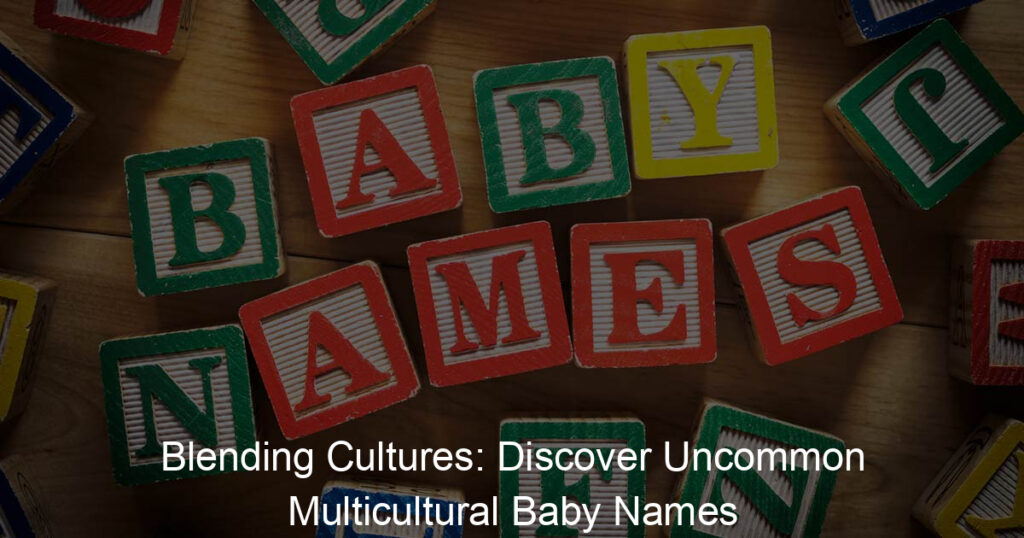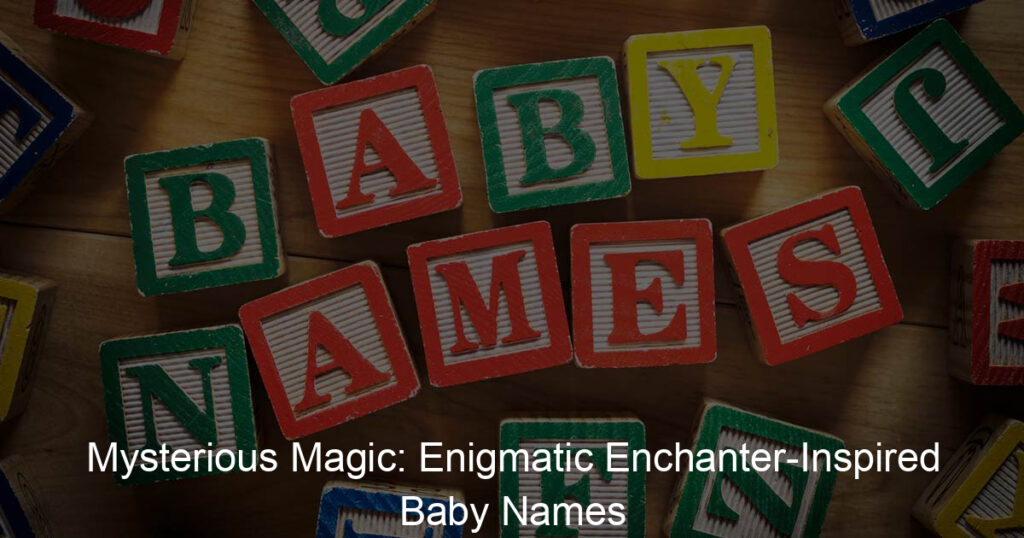Are you expecting a special little one soon, and looking for a meaningful Jewish name to reflect their heritage? It’s a big responsibility – naming your baby is an ancient tradition that carries great significance. But with so many thoughtful nuances of the Hebrew language, religious customs, and cultural regulations to consider, where do you even begin?
With this blog post, we’ll guide you through the basics of the beloved ritual – giving insights into the most important Jewish baby naming rules.
What is the Jewish tradition for naming babies?
In the Jewish tradition for naming babies, parents name their child based on religious principles—either to commemorate a historical event or personage or to symbolize hopes and aspirations for the child’s life. Jewish laws are considered in making this decision, including an additional name that is chosen in memory of a relative who has passed away.
Naming ceremonies can be intimate affairs between close family members or grandiose public gatherings. The act of naming holds great significance as it establishes an individual’s identity within the broader community; as such, before the ceremony, there is often much deliberation over what to name the baby, and preparing for the event itself is often an exciting process.
What is the Jewish naming pattern?
The Jewish naming pattern is centuries old and still practiced today. According to the practice, a boy is given the name of his paternal grandfather as his Hebrew name at his circumcision. Upon marriage, a woman is given her husband’s first name as a second name – often preceded by ‘bat’ (Daughter of) or ‘ben’ (Son of).
These customs give family members both an individual identity within their family and also reinforce the continuity between each generation. Additionally, the names chosen allow parents to honor ancestors while maintaining traditions that span generations.
Are Jewish babies given names at the first?
Jewish babies are given names shortly after birth, typically at the ritual circumcision ceremony known as a brit milah. The ceremony can be held anywhere from eight days after the baby’s birth to 12 months depending on the family tradition and the Torah. After this ceremony is the perfect time to give a baby their Hebrew name, often with some significant meaning behind it.
In addition to the Hebrew name, many Jewish families also attach an English name which is used in everyday life. Whether it’s a family name passed down through generations or the combination of two separate names that come together perfectly, these biblical names prove to be beautiful gifts for Jewish babies!
Why do Jews have 2 first names?
Jews have been giving their children two names for centuries as a way of honoring both family and religious traditions. The first name is usually a Biblical name that honors a figure from the Old Testament or a traditional Hebrew name. The second name is more practical; it’s used in everyday life, whether it be at school, work, or social engagements.
Many Jews find solace and comfort in being able to trace their family’s history through these distinct naming conventions. Having two names gives Jewish families both modernity and tradition, making them feel connected to those who came before them while keeping up with the times.
What is Israel’s naming system?
In Israel, many families have their unique naming customs. When a baby is born, they are traditionally given both a Hebrew name and an additional secular nickname or family name. This secondary name can be created by modifying either the Hebrew name or a word with a special meaning to the family.
The surname is often added on top of the given names, but it is also possible for Israelis to use their father’s first name as their last name. Despite this range of possibilities for personalization, most people in Israel share common first names due to religious beliefs that connect individuals to ancient biblical figures.
When did Jews start using surnames?
Jews started using surnames in the late eighteenth century, but they became more widespread by the mid-nineteenth century. This practice was adopted primarily in response to European governments who were increasingly demanding that citizens have fixed identities and family names to better track them for taxation purposes and other governmental registrations.
In some cases, like Ashkenazi Jews, certain family names became specific to certain communities over time. With more people traveling in recent centuries due to increased mobility, however, many families of Jewish descent have adopted a variety of surnames from different cultures.
Why don t Jews name babies after living relatives?
Many cultures have their traditional customs when it comes to naming conventions, and for Jews, one of those conventions is not to name a baby after anyone currently alive. This tradition dates back centuries and has an important purpose. For example, having distinct names makes it easier and faster to fill out paperwork or other essential documents since all the names are uniquely different.
It also avoids any potential confusion in terms of who is related to whom since similarities in living relatives’ names can cause mistaking families and connections between people. Furthermore, it takes away any sense of competition between generations as everyone has their distinct name which helps promote equality and respect for different generations within the same family.
How do Jews choose their name?
Throughout Jewish history, most Jews receive their name from a close family member. In some communities, it is customary for children in a family to all receive the same first letter for their names, so all brothers and sisters have names that start with the same letter.
In other cases, ancient texts are referenced to select baby names that signify strength or divine power. Often, Jews will give their children a combination of Hebrew and modern-day monikers. At times, relatives that have passed will be honored by choosing a name instead of them, as well as any particular qualities identified in the late family member.
All Jews strive to pass along meaningful and symbolic values through their choice of a name selection.
Do Jews change their name when they convert?
The short answer to the question of whether Jews change their name when they convert is “it depends”. While some Jews may decide to alter their surname upon conversion, others might not feel the need to do so. This decision is entirely personal and dependent on the individual, their reasons for converting, and how closely connected they still feel to their birth name.
There are many spiritual or cultural implications for changing one’s name in Judaism, whatever the case may be – so individuals need to assess what outcome would make them the most comfortable, both mentally and emotionally. Ultimately, no matter a person’s choice concerning their name, conversion is a deeply beautiful procession that must be respected wherever people take it.
What is a common name for Jews?
Many Jews share a common name across genders, cultures, and centuries. The most popular given name for Jews is Cohen, which means “priest.” Another common Jewish name is Levy, which means “joined in harmony.” Names such as Abraham, Isaac, and Jacob are also popular among Jews, due to their association with prominent biblical figures.
While the meaning of these names has evolved, they have all stayed within the broad scope of “Jews”. In modern times, parents are opting for names that blend culture and tradition but still possess elements of Judaism to identify their heritage. That can mean shorter versions of traditional Jewish names such as “Joe” instead of “Joseph” or arrangements derived from numbers such as “Navon” from the gematria 576 or even integrating Hebrew words into English names like “Shoshanna.”
Ultimately whatever variation or combination is chosen, the name must include significant cultural meaning for those born into the faith.
Conclusion
By understanding the Jewish Baby Naming Rules, you can add a unique touch of symbolism to your special event. While there are some restrictions when it comes to baby naming, you can still honor your family’s heritage while also giving your child an individualized name. It’s important to consider that these customs are held in high regard and carefully selecting a name requires thought and consideration.
Baby naming is about more than just choosing a name; it reflects Jewish values and traditions that span across centuries and add depth and meaning to each occasion. Ultimately, whichever name you choose offers the perfect opportunity to honor both your faith and the newest addition to your family.
